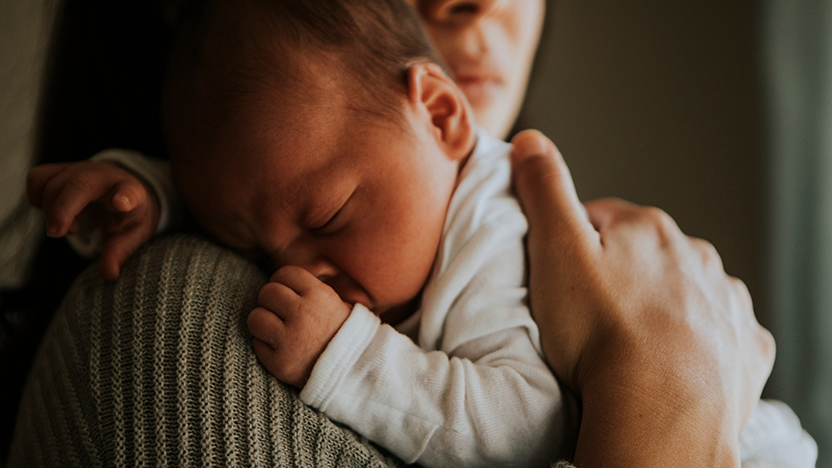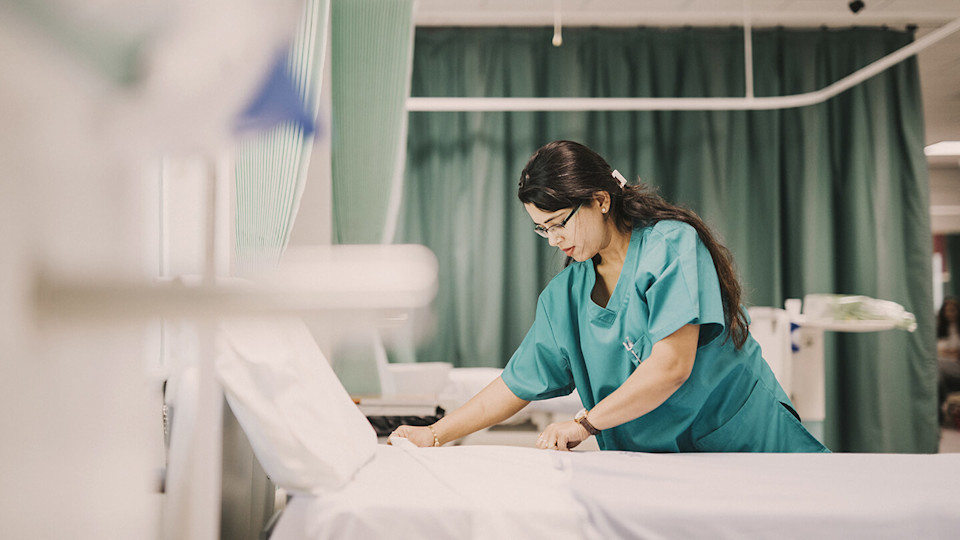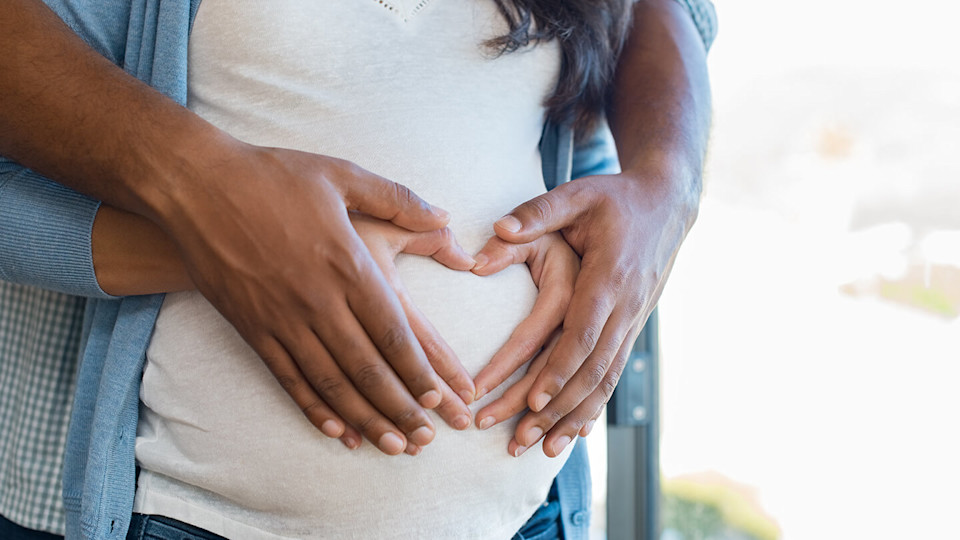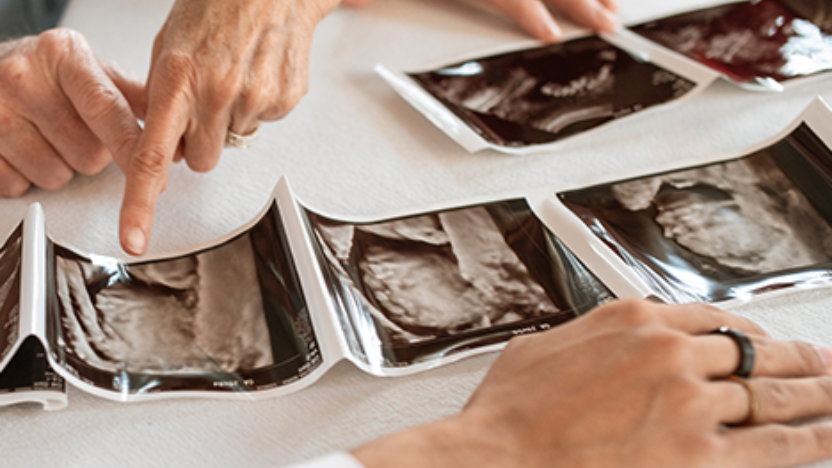
Medical negligence
Baby died after mother ‘abandoned’ by midwives
A baby died after her mother was “abandoned” by midwives during active labour and gave birth unattended in hospital, having been given so much pain relief after being induced that she was unable to call for help and did not even realise her child had been born.
A baby died after her mother was “abandoned” by midwives during active labour and gave birth unattended in hospital, having been given so much pain relief after being induced that she was unable to call for help and did not even realise her child had been born.
Despite having a high-risk pregnancy where she was monitored throughout, Emily Brazier gave birth at the University Hospital of Wales alone – and daughter Liliwen Iris Thomas died 20 hours later on October 10, 2022, after being starved of oxygen.
Emily and partner Rhodri Thomas, from Cardiff, have shared their “total and utter devastation” at the “wholly avoidable” death of their newborn baby, with Emily being diagnosed with PTSD as a result of her traumatic unattended delivery.
“I am so angry at how I was left alone. For all the checks I had during my pregnancy, what were they for, if I was just going to be abandoned when it really mattered?” says Emily, who gave up her ambition to be a nurse following the trauma.
“I have very hazy memories of my labour after being given strong, mind-altering medication and being left unattended with the gas and air, which I heavily overused due to non-existent monitoring - but then I vividly remember peeling back the covers and seeing Liliwen there, completely still and lifeless. I can only describe it as a blood bath.
“That image will be with me forever. I still have flashbacks and nightmares and have been in counselling since it happened. I can’t really describe the horror of what I saw.”
Rhodri has also described the guilt he felt at being asked to go home due to the maternity unit’s policy of having no partners on the ward from 9pm to 9am, unless their partner was in active labour – which Emily was not at the time he left.
“I should have been there; I could have been Emily’s advocate. I would have pressed the call bell and alerted midwives that she was clearly in active labour and needed extra monitoring and help. If I had been there, our daughter would be alive today,” says Rhodri.
Emily was closely monitored throughout her pregnancy and was undergoing induction due to her having low Pregnancy Associated Plasma Protein A (PAPP-A) – the same as she had with older daughter Carys. She was under the care of a consultant during her pregnancy with Liliwen, and had several scans over the months to ensure the baby’s welfare.
As part of her monitoring, it was flagged that when giving birth to Carys three years previously, her labour progressed extremely quickly after she was given pethidine and Entonox pain medication, which she was administered again for Liliwen’s birth. Carys received extra monitoring by midwives post-pethidine, as it is known to cause respiratory depression in babies.
Liliwen was due on October 7, 2022, so was booked in for an induction under PAPP-A protocols – but twice was sent home due to lack of bed availability. When Emily was eventually induced on October 9, as her labour progressed, she was told there was no room in the delivery suite.
Emily was given pethidine and codeine for pain relief, as well as being left unattended with gas and air, at around 11.50pm. At 2.15am on October 10, Emily recalls “being in a cycle of puffing gas and air, passing out, and repeating”. She stirred eventually from her drowsiness enough to discover the horror of her daughter having already been born.
“It was absolute panic from that point, they took Liliwen away and rushed me up to the delivery suite, I had lost a lot of blood and needed stitches, IV fluids and a blood transfusion. All this happened while I was still on the induction ward, with only curtains around my bed separating me from four other women. It must have been horrendous for them too,” says Emily.
“After my labour with Carys, we knew the pain relief would speed things up very significantly. All of the extra monitoring I had throughout my pregnancy, it was almost pointless in the end – because when I really needed help, no one was there, and Liliwen paid the ultimate price.”
While the hospital contacted Rhodri to tell him he could now come in, he was not pre-warned about what he was about to face, and believed Emily was in labour.
“I got a taxi to the hospital and remember talking to the taxi driver excitedly about how I was about to meet my newborn child,” says Rhodri.
“When I got there and saw Emily, she was white as a ghost and in a bad way, she told me ‘I don’t know if our baby is alive’. I just couldn’t believe it. I still can’t. Staff gave me strange looks as soon as I entered the unit, and all along the corridors, but not one of them warned me what I was about to face on entering Emily’s room.”
An internal hospital investigation revealed that some of the midwives caring for Liliwen were not compliant with Health Board training and therefore were not able to effectively assist during the resuscitation attempts on Liliwen, until the crash team arrived and stabilised her.
Although Liliwen was put on life support in NICU, tragically she died later that same day, when Emily and Rhodri had to make the unimaginable decision to switch off the machines, as there was no hope she would recover. Her cause of death was given as perinatal asphyxia (lack of oxygen at birth), congenital bacterial infection and placental problems.
“We were given a private room in NICU to cuddle and cherish Liliwen while she passed away. Little did we think the first time we’d hold her would be the last time,” says Emily.
Since that time, both Emily and Rhodri have struggled psychologically, and Emily – who was studying to be a nurse at the time she had Liliwen – has opted against a career as a registered nurse after the trauma she suffered on a hospital ward.
While the couple welcomed their third child, a son named Ellis, in December 2024, Emily says the grief of the loss of Liliwen continues to cast a shadow over the family’s lives.
“So many happy memories and special family moments are tinged with sadness. I dread family events and Christmas as Liliwen will never be there, she will always be the missing piece, her death should never have happened and that’s hard to live with,” says Emily.
“I look at the faces of my living children and long to know what Liliwen would look like now at two-and-a-half years old. I will never get over her death, I feel stuck in time.
“I will never be the same person again. Holding your child as they take their last breath, leaving them behind after their last ever cuddle, walking out of the hospital with an empty car seat, there are so many painful memories seared into my brain.
“I have lost my child; it’s every parent’s worst nightmare and we live the nightmare every single day.”
The couple have turned to law firm Slater and Gordon for support in pursuing a claim against Cardiff and Vale University Health Board, which manages University Hospital of Wales. The Board have admitted liability for their role in the tragedy.
“This is a truly shocking, almost unbelievable, case – I have never come across anything like this before,” says Lara Bennett, senior associate at Slater and Gordon, who has worked in clinical negligence since 2010.
“Emily’s pregnancy was known to be high risk, she was known to progress quickly in labour – yet she was left all on her own, with so much pain medication she did not even realise she had given birth to Liliwen. The failures in this case are astonishing and Liliwen’s death was wholly avoidable.
“We are supporting Emily and Rhodri in every way we can to secure justice for their daughter after the most unimaginable and traumatic ordeal.”
Emily and Rhodri would like to express their gratitude to the Cardiff Rainbow Clinic for the care they gave to the couple with the birth of Ellis, and are fundraising in Liliwen’s memory for the centre. Donations can be made at: Cardiff Rainbow Clinic is fundraising for Cardiff & Vale Health Charity



